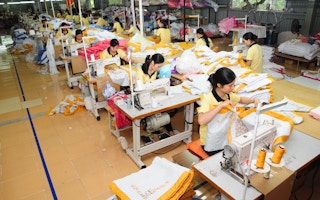Last year, the Global Reporting Initiative (GRI) marked 15 years since the publication of its very first sustainability reporting guidelines. Back then, the guidelines provided the growing number of companies reporting on environmental and social impacts with a welcome set of standards.
Today, GRI’s database collects together over 30,000 sustainability reports published since 1999 – 70 per cent of them in accordance with GRI’s framework.
But what has changed in the last 15 years is the sheer quantity of information available outside of company reports. Stakeholders are used to having an array of accurate, up-to-date information at their fingertips, from NGOs, investor groups, government agencies and media organisations – not to mention hackers and whistleblowers. Sustainability reports risk becoming lost in a sea of data.
To its credit, GRI has recognised that there’s an issue. Last year, it set out a “Beyond Reporting” ambition to help companies provide sustainability information that is “more accessible, comparable and available in real-time.” A couple of weeks ago it announced the Digital Reporting Alliance, which aims to create a digital platform for sustainability data to be “liberated” from corporate reports and effectively analysed.
In fact, GRI is just the latest to arrive at this idea. Glassdoor allows employees to share information on salaries and job satisfaction. Platforms such as WikiRate (now a GRI partner) and OpenLabel enable customers to look up everything from companies’ effective tax payments and product safety records to their rankings on Oxfam’s ‘Behind the Brands’ and the Access to Medicines Index.
Some companies are experimenting with greater openness. Nike has made its full supply chain database available online. Last year, Airbnb released 170,000 rows of dataon its New York listings, in an effort to combat criticism of its business model.
“
Imagine a live video feed from a factory-worker’s smartphone, streamed to customers around the world.
However, for many companies there is a lingering fear that providing more open and democratic access to data will only give ammunition to their critics.
But as the Panama Papers have shown, secrecy is no longer an option. While companies debate over the minutiae of what to disclose in their annual sustainability reports, the reality is that more and more information will become publicly available that they cannot control.
And while the technology is still clunky (OpenLabel’s barcode-scanning app still doesn’t work on most smartphones), it will get better with every iteration.
Imagine an app that collects together all the company data released via hackers, whistleblowers, lawsuits and regulatory requirements.
Imagine a live video feed from a factory-worker’s smartphone, streamed to customers around the world. Imagine warnings that hover over items on supermarket shelves in augmented reality – “contains conflict minerals”, “made with child labour” – with shoppers winning virtual rewards for buying ethically.
Confronted with the transparent availability of massive datasets, companies’ only defence will be to become radically transparent themselves. Instead of asking, “will it hurt us to disclose this information?” forward-thinking companies should now be asking themselves, “when will it hurt us that we don’t?”
Charlie Ashford is a Consultant at Corporate Citizenship. This post is republished from the Corporate Citizenship blog.











